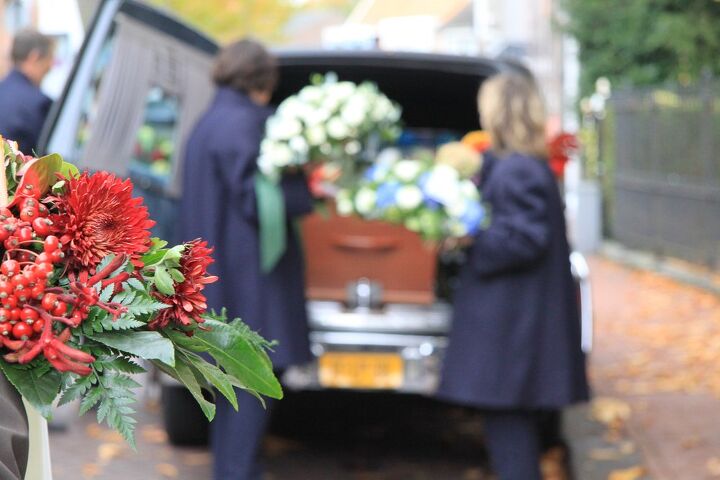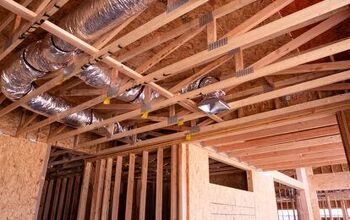Do Realtors Have To Disclose A Death In The House?

It’s important to ask as many questions as possible when you buy a house. That is the best way to ensure you don’t wind up with a house that will require frequent maintenance or make you feel uncomfortable. One piece of information that’s important to many prospective buyers is whether someone has died in the house. So, do realtors have to disclose a death in the house?
Realtors must disclose a death in the house in 14 states, including South Dakota, Alaska, and California. However, they typically must only disclose the death if it wasn’t due to natural causes or occurred within the past one to three years. That said, realtors must disclose deaths in any state if the prospective buyers ask about it.
Unnatural deaths, such as drug overdoses, murders, and suicides can affect home value, as that is off-putting to many people. Natural deaths occur in countless homes, as that is part of life, but it’s nice to know about them before you move in. Follow along as we explore everything you must know about a realtor's responsibility when it comes to disclosing death in a house.
Do You Have To Tell Buyers If Someone Died In Your House?
You don’t have to tell buyers if someone died in a house in most states. Realtors are only required to disclose deaths in the house in 14 states in the country. These states include South Dakota, California, and Alaska.
However, there are several caveats related to the time and manner of death. For example, realtors in California must only disclose deaths in the house if they occurred in the last 3 years. You only need to disclose murders and suicides in South Dakota and Alaska if they occurred within the last 12 months.
Realtors in Delaware aren’t required to disclose deaths of any kind unless the buyer requests the information. New Jersey has one of the best rules, as the state only requires realtors to disclose a death in the house if it was related to conditions in the house. For example, you must disclose deaths related to carbon monoxide, gas leaks, and mold.
Otherwise, you aren’t required to disclose any death in states like Illinois, Alabama, Michigan, Hawaii, North Carolina, and more. That said, realtors must be honest if the buyer asks about deaths in the house.
Does A Death In The House Affect Its Value?
Natural deaths don’t affect the value of your house. This includes heart attacks, strokes, and diseases that eventually lead to death. Unnatural deaths include accidents, drug overdoses, acute intoxication, suicide, and murder.
These types of deaths can affect house value, but it ultimately depends on the buyer. For example, some buyers are naturally hesitant to move into a house where a violent or tragic death occurred. That’s especially true in states where realtors must disclose unnatural deaths.
Unnatural deaths can also affect home value if the death happened because of something related to the house. Carbon monoxide poisoning and mold-related illnesses can understandably make people think twice about buying a house. That said, natural deaths related to health conditions and age are unlikely to affect home value because they don’t reflect on the house itself.
Is There A Way To Find Out If Someone Died In Your House?
The easiest way to find out if someone died in your house is to simply ask the realtor. However, that’s not always possible if you’re a renter or if you cannot contact your realtor anymore. In that case, you could use several online resources to find out if someone died in your house.
Depending on what city or state you live in, you may be able to find out if someone died in your house via Google. Simply search your address and select the “News” filter to narrow down the results. This is a fast way to find out if someone died at your house because of a crime, and that’s a red flag for prospective buyers.
You can also look up census records or search for National Archives vital records. The National Archives keeps a database of death certificates, which you could use to find out if someone died at your house before you moved in. Otherwise, you can ask the previous homeowner if they know of any deaths in the house if you cannot reach the realtor.
What Can You Do If A Realtor Lies To You?
You can sue a realtor that lies to you if you can prove it, and if the information they lied about is important. For example, you can sue a realtor if they fail to disclose important material information related to the house. This includes key facts about the condition of the house and inspection information.
That can also include failure to disclose recent deaths if you live in a state where disclosure is required. However, lawyers will typically only represent you if you can prove that the realtor misled you or failed to disclose this information. Fraud and misrepresentation are easy cases to close because of the paper trail.
In the eye of the court, lying is just as bad as omitting information that is important for buyers to know. That’s why it’s important to keep track of the process and all the documents that come with it when you buy a house. Most importantly, you must only work with realtors who have great reputations and are trustworthy.
Summing It Up
Realtors in states like South Dakota, California, and Alaska must disclose deaths in a house that’s on the market. However, you must typically only disclose unnatural deaths or deaths that occurred within the last 12 to 36 months. You don’t have to disclose deaths in 36 states, but you must answer honestly if the prospective buyer asks about recent deaths.
Murders, suicides, and deaths related to problems within the home can bring down a house’s value. Provide a written request to the realtor if you want to find out about recent deaths before you buy a house, if that’s important to you.
Related Guides:

Nick Durante is a professional writer with a primary focus on home improvement. When he is not writing about home improvement or taking on projects around the house, he likes to read and create art. He is always looking towards the newest trends in home improvement.
More by Nick Durante












![The 5 Best Angle Grinders – [2022 Reviews & Buyer's Guide]](https://cdn-fastly.upgradedhome.com/media/2023/07/31/9071326/the-5-best-angle-grinders-2022-reviews-buyer-s-guide.jpg?size=350x220)














